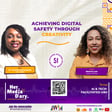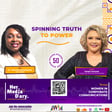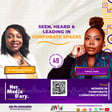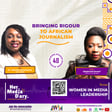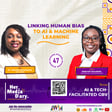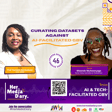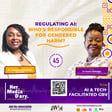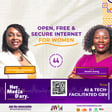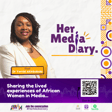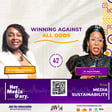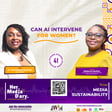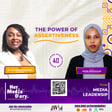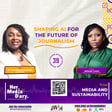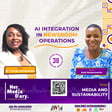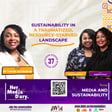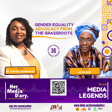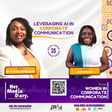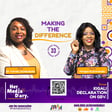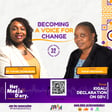
Her Media Diary Episode 12."Taking Brave steps" with Adelle Onyango
Adelle Onyango is a Kenyan media personality, podcaster and founder of the Adelle Onyango Initiative, an organisation that empowers youth and provides psycho-social support to African women survivors of rape. Through her podcast, Legally Clueless, she captures the raw human stories of everyday Africans.
In this episode, Adelle shares the stories behind the many brave steps she has taken, from her career to her activism and use of media to tackle gender-based violence. Adelle's story embodies resilience and what happens when you confront your fears.
If you are contemplating that next big step, if you want to empower others through media and storytelling, you'll want to listen to this episode.
Subscribe be to Her Media Diary now on your favourite podcasting platform https://linktr.ee/hermediadiary
Learn about African Women in Media https://africanwomeninmedia.com
List of organisations that support survivors
Masimanyane Women’s Rights International: https://www.masimanyane.org/
Gender Violence Recovery Centre (GVRC): https://gvrc.or.ke/
The Gender-based Violence Command Centre (GBVCC): https://gbv.org.za/about-us/
FORWARDUK: https://www.forwarduk.org.uk/i-need-help/
Woman’s Aid: https://www.womensaid.org.uk/information-support/
Women Empowerment and Legal Aid (WELA): https://welaonline.org/
MUSASA: https://www.musasa.co.zw/
